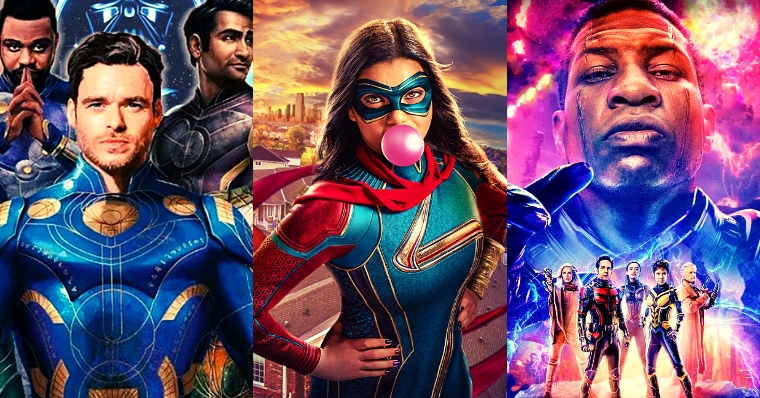Since its inception in 2008, the
Marvel Cinematic Universe (MCU) has been nothing short of a cinematic juggernaut. It's catapulted itself into the stratosphere of pop culture, becoming one of the most profitable and adored franchises ever to grace the silver screen. From the ensemble smashes like "The Avengers" to epic sagas like "Infinity War" and "Endgame," Marvel heroes have not just shown up; they've owned the place. However, let's cut to the chase—things haven't been all sunshine and rainbows lately. The narrative landscape has started to look a bit more like a carousel than a rollercoaster, spinning without delivering the thrills it used to. Fan enthusiasm remains sky-high, but the studio has been dropping the ball on some key creative decisions. So, without further ado, let's peel back the curtain and dig into the six major issues that Marvel Studios has been wrestling with since the grand finale of "Avengers: Endgame.
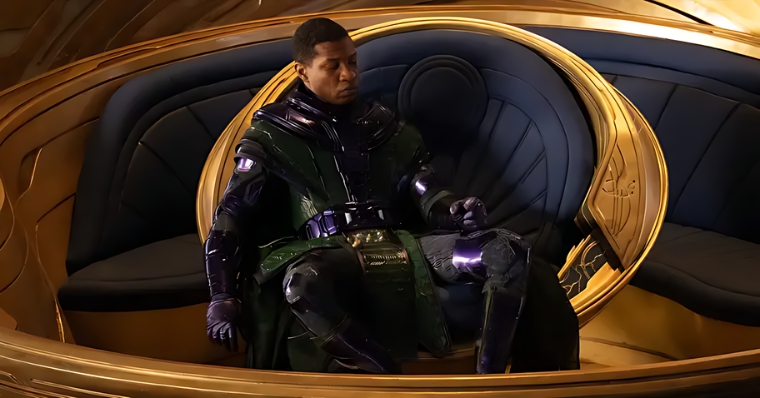
Eyes on the Future, Overlooking the Present
One of the secret ingredients that helped Marvel's Cinematic Universe magnetize a legion of fans has always been its meticulous planning. Over fifteen years, Kevin Feige, the puppet master pulling the strings, displayed an uncanny ability to weave an intricate narrative. Each film acts like a chapter in a sprawling, magnificent epic populated by heroes and villains galore. This narrative brilliance was especially evident during the Infinity Saga, which encompasses the first three "phases" of the MCU. This intricate choreography of storytelling is precisely what has tripped up many other studios in their clumsy attempts to replicate Marvel's shared universe. But hold on; let's not ignore the elephant in the room. Lately, this meticulous planning appears to be less of an asset and more of a double-edged sword. The impression you get is that each new film or series is preoccupied—almost neurotically so—with laying the groundwork for narrative arcs that won't pay off until a few years down the line. Even laudable productions like "WandaVision" and "The Falcon and the Winter Soldier" appear to be more invested in foreshadowing what's on the horizon than in being memorable stand-alone works. This trend is becoming increasingly noticeable with every fresh premiere. The preoccupation with the future has its drawbacks. For example, it's like meticulously setting up a row of dominoes so intricate and expansive that you never get around to actually tipping the first one over. It's all sizzle and no steak, all setup and no payoff. In their bid to create a tapestry of interconnected plots worthy of classics like "The Avengers" or "Infinity War," it seems the current offerings sometimes forget to shine in their own right. And it's not as if these new projects lack the potential to be iconic in their own way. Characters like Wanda Maximoff and Sam Wilson have stories rooted in comics like "House of M" and "Captain America" volumes that deal with the intricacies of being a hero in a complex world. Yet, instead of delving deep into these rich backstories, the focus appears to be diverted toward laying Easter eggs for future installments. In a nutshell, the hyperfocus on future planning seems to be diluting the magic of the 'here and now,' rendering some of Marvel's recent projects as mere stepping stones rather than individual masterpieces. While a well-thought-out roadmap has its merits, sometimes you've got to live a little in the present, letting each story breathe and flourish before hurrying off to set the stage for the next big thing.
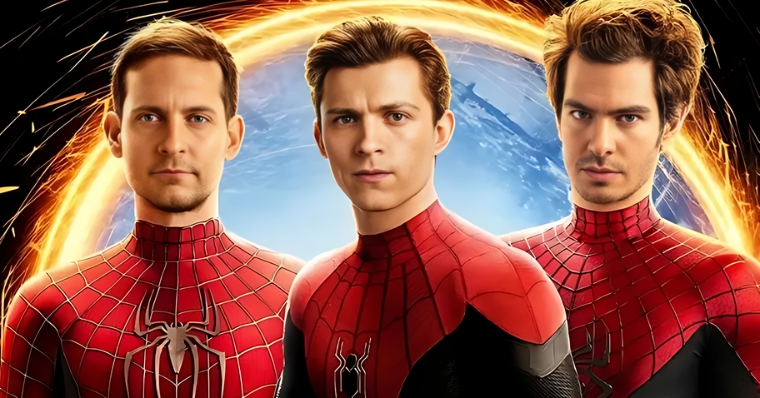
Fan Service Morphs from Easter Egg to Main Course
"Avengers: Endgame" wasn't just a movie; it was a full-fledged phenomenon. The grandiosity of the narrative matched the scale of the spectacle. This film took fan service to a new level with intricately crafted narrative choices and an overload of easter eggs to reward its dedicated fanbase. But what once was an artful trick in Marvel's repertoire has, over time, started to feel like a curse that's hard to shake off. Post-"Endgame," the landscape of Marvel Studios seems as if it's stuck in a nostalgic loop. It's as though the studio is desperately attempting to recapture the magic of that final showdown, serving audiences bite-sized nuggets of the 'Endgame experience' over and over again. The result? An arsenal of new productions is overstuffed with easter eggs, callbacks, and cameos but painfully thin on new content. The journey down the rabbit hole of the Multiverse could have been an exhilarating adventure, but the execution leaves a lot to be desired. While "Spider-Man: No Way Home" has managed to spin its web across fans' hearts, "Doctor Strange in the Multiverse of Madness" seems like it's throwing in guest appearances willy-nilly, diluting the magic—pun fully intended. And word on the street is "Deadpool 3," currently under production, might be plagued by the same issue. So what's going on here? Even the iconic comics, like "The Infinity Gauntlet" for Avengers or "Kraven's Last Hunt" for Spider-Man, knew the art of balance. They knew when to give a nod to the fans and when to focus on creating an epic, self-contained story. But current Marvel projects? They are starting to resemble one of those overstuffed Thanksgiving turkeys—lots of fillings but running the risk of being dry on the inside. And this is where the term' fan service' starts to lose its charm. In literature, there's a concept called Chekhov's gun: if a gun is described in the first act, it better go off by the third. But Marvel's recent approach feels like they're showing off a gun, a grenade, and even a rocket launcher—and then just leaving them on the table for the whole performance. Sure, easter eggs are fun, like a scavenger hunt intertwined with the main event. They should be the flavorful spices in a gourmet dish, not the main ingredient. The Multiverse, inspired by comic arcs like "Spider-Verse" and "Doctor Strange and Doctor Doom: Triumph and Torment," is a buffet of storytelling opportunities. Yet, its current use feels less like a narrative frontier and more like a convenient dumping ground for excess. Here's some food for thought: What if Marvel Studios took a step back to recalibrate? Instead of incessantly setting up future plotlines, maybe focus on nailing the story at hand. You see, empires—cinematic or otherwise—aren't built solely by clinging to past triumphs. They flourish by continually evolving while retaining the essence that made them great in the first place.
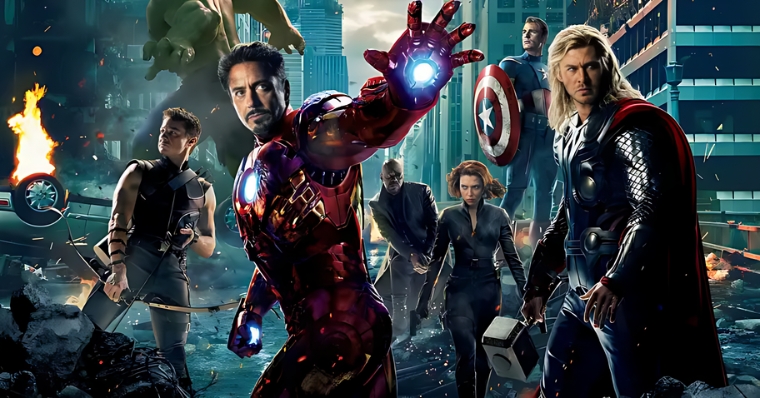
Losing The Art of Climactic Closure
In the Golden Age of Marvel's Infinity Saga, simplicity was the key. Each "phase" of the Marvel Cinematic Universe (MCU) had its own distinct finale, usually adorned with an Avengers title. Think about it: Movies like "Avengers: Age of Ultron" might not have tied up every loose end, but they at least served as a grandiose curtain call, rounding out the host of films that had led up to them. It felt like a season finale of a beloved TV series, giving us that satisfying conclusion before setting up the drama for the next arc. But flash forward to today, and it's clear that the notion of a "climax" for each phase has vanished into thin air. Now, the MCU's current trajectory appears to be on a long and winding road toward a pair of monolithic milestones: "Avengers: The Kang Dynasty" and "Avengers: Secret Wars." Phase 4 wrapped up without delivering that adrenaline-pumping conclusion we're used to, and Phase 5 seems to be sprinting down the same track. Let's dissect that for a moment. As it appears, the grand scheme aims to transform the Avengers franchise into a gargantuan cinematic event with films released at increasingly lengthier intervals. But while we're waiting, we get intermediary films like "Shang-Chi and the Legend of the Ten Rings" and "Eternals" that give the sensation of being mere stepping stones in a much larger saga. Interesting? Absolutely. Satisfying in the way that we've come to expect from Marvel? Not so much. What's concerning is that we've entered an era where Marvel films and series seem to be perpetual cliffhangers. While the comic book roots of Marvel, from the "Infinity Gauntlet" series to the original "Secret Wars," did give us expansive storylines, they also understood the importance of milestones—clear markers that signified the end of one journey and the beginning of another. They acted as pressure-release valves in the never-ending torrent of Marvel adventures. So, where does that leave us? Like a suspenseful author holding out on the last chapter, Marvel seems to be playing a game of narrative keep-away. You can almost hear the implicit message: "Stay tuned because the REAL action is coming... someday." It's like buying a puzzle but realizing that the corner pieces aren't going to be available for years. What happened to the promise of climactic punctuation at the end of each phase? Are we sacrificing the rhythmic beauty of periodic highs for the promise of a future, even more extraordinary apex? It's as though Marvel has become that magician who keeps pulling a seemingly endless handkerchief from his pocket; at first, it's mesmerizing, but after a while, you can't help but wonder: Where's the final flourish that leaves the audience in awe? In essence, the concept of 'climax' in each phase provided a pacing structure akin to a well-crafted symphony with its crescendos and conclusions. And like any good piece of music, a symphony is best enjoyed as a complete experience, not just an endless loop of rising action. Will we have to sit through a decade of foreplay before we get to the grand opus that is "Avengers: The Kang Dynasty" and "Secret Wars"? One can only wonder if Marvel has pondered the artistic cost of such a protracted approach.
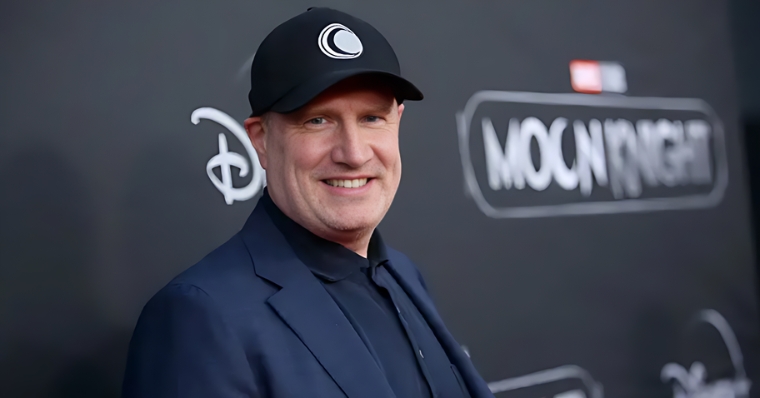
Artistic Constraints
There's no denying that Kevin Feige stands as one of the most intriguing and successful masterminds behind Marvel's Cinematic Universe. Dubbed the first "rockstar producer" of recent years, he's more or less orchestrated a sprawling, interconnected narrative with finesse throughout the Infinity Saga, thereby cementing his creative triumph at Marvel Studios. It's a classic rise-to-power tale; instead of a mob boss or a tech billionaire, you've got a guy pulling the strings of the world's favorite superheroes. But even Shakespearean heroes face a downfall, right? Let's level: it's not Feige's fault entirely, but he's the face, the name on the door. So when things start to go awry, all eyes naturally zoom toward him. If we put on our cinematic detective hats and deep dive into Marvel's recent productions, what becomes starkly clear is a meticulously managed assembly line. In this highly orchestrated setup, artists increasingly seem like mere cogs in a larger machine where the real "storyteller" is Feige himself. That spirited creative freedom, once touted as the DNA of early Marvel films, seems to be fading away. And this isn't merely conjecture or armchair theorizing. Solid directors—take Taika Waititi, Chloé Zhao, or Sam Raimi, for instance—appear to be stifled under the weight of studio expectations. It's as if the script has been flipped; what once was a playground for visionary storytelling has started to resemble more of a cookie-cutter factory. Amplify this situation with the incessant churn of new Marvel titles—both on the big screen and streaming platforms—, and you've got an inflated market heavy on quantity but light on fresh, captivating offerings. Let's not even get started on how this impacts the comics, the original sources like "Thor," "Doctor Strange," and "Eternals," which themselves often boasted innovative storytelling free from the constraints of a shared cinematic universe. Here's the crux: When you've got an increasing number of properties to manage and a reputation to maintain, the propensity for risk-taking dwindles. And that's a potentially catastrophic situation for a universe built on awe, surprise, and endless possibilities. It's not a question of whether Feige is still capable of creative leadership—he's proven that beyond a shadow of a doubt. The real issue is whether the Marvel machine has become too much of a well-oiled operation, where the art of organic storytelling gives way to a sort of narrative micromanagement. So we're stuck at an intriguing crossroads, aren't we? The MCU now functions more like an intricately designed clock, less reliant on the inspired strokes of individual artists and more on the precise gears of a collective mechanism. And that collective mechanism is becoming increasingly heavy-handed, monitored not by the many but by the influential few. While there's no easy solution to the conundrum Marvel finds itself in, there's something to be said about rediscovering the magic of spontaneity and artistic individuality. It's about finding that delicate balance between a producer's vision and an artist's craft. Whether Marvel can resolve this tension and return to a place of genuine creativity is the million-dollar question—or given their box office earnings, maybe we should say the billion-dollar question.
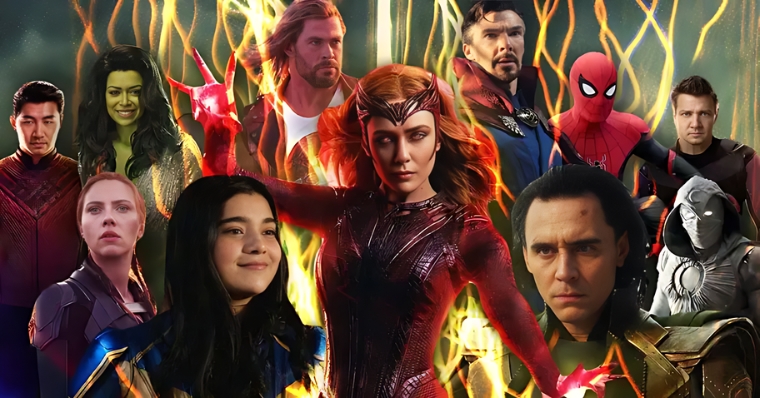
The Overload Factor
From 2008 to 2019, the Infinity Saga went full throttle, unfurling its vast narrative tapestry over 23 films. Let's not forget that after we all collectively hit the "pause" button during the COVID-19 pandemic, the Marvel train got right back on the tracks in 2021. And boy, did it make up for lost time. Fast-forward to now, and what have we got? Nine films, nine series—yep, that's 18 productions in the relatively short span of just three years. There was a moment in the zenith of 2021 when it felt like Marvel was literally everywhere you looked. You couldn't flip through your streaming choices without bumping into a Marvel premiere. Whether it was a movie or a new episode rolling out on Disney+, your watchlist was more crowded than Times Square on New Year's Eve. And while this Marvel-a-thon may be a cash cow for the Disney higher-ups, the audience—well, that's us—is left navigating a maze of releases, feeling a tad bit fatigued. There's something to be said about anticipation, and let's face it: You can only look forward to something if you actually have the time to breathe in between. Bob Iger and Kevin Feige have apparently gotten the memo. They've already announced plans to scale back the number of Marvel Studios productions for the foreseeable future. And honestly, it might just be one of the most straightforward solutions to avoid audience burnout and superhero genre fatigue. It's like the Marvel universe became that friend who texts you every five minutes—you love 'em, but you also wouldn't mind if they dialed it back a bit. Less is more, right? Maybe it's high time we traded in the non-stop carousel of MCU releases for a more curated experience. One where the anticipation builds, the characters have room to grow, and the storylines don't feel as rushed as a New Yorker late for work. Let's not forget the comic book roots of all these characters: "Spider-Man," "Doctor Strange," "WandaVision" (which drew heavily from "The Vision and the Scarlet Witch" comic series). In the comics, the narrative arcs had the luxury of unfolding over months, sometimes years, allowing readers to engage truly, mull over plot intricacies, and invest in character growth. When we're given room to pause and reflect, that's when the magic happens. That's when we move from passive consumption to active engagement. That's when we turn off the auto-play and switch on our critical thinking. After all, with Marvel's epic scale, there's more to appreciate than just dazzling special effects and snappy one-liners. When we're not constantly running to keep up, we have precious moments to sit down and think about the complexity of themes like power, identity, and morality that these stories often bring to the table. So, could this upcoming deceleration in the Marvel production pipeline be the antidote to our collective exhaustion? Will it give us the much-needed space to watch, ponder, discuss, and maybe even re-watch? It's a question that only time, and perhaps fewer productions, will tell. But here's hoping that by slowing down, Marvel doesn't just save its heroes from omnipresent threats but also saves us, the viewers, from the dangers of sensory overload.
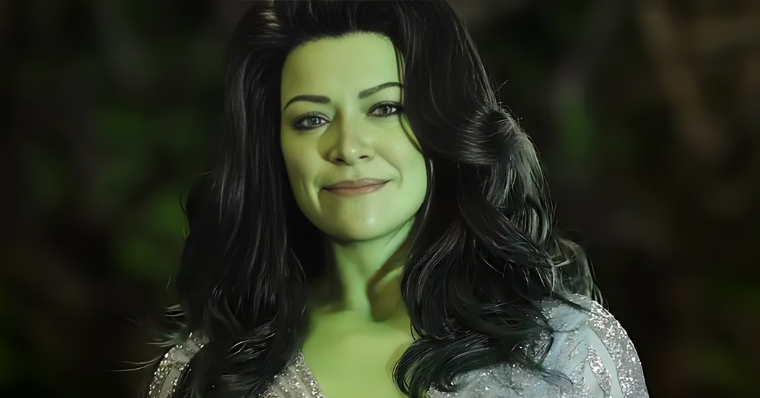
MCU Sprint: When Going Fast Isn't Always Furious
Piggybacking off the last topic, nobody would accuse Marvel Studios of taking a leisurely Sunday drive when it comes to their production schedule. Far from it. It's more like the Marvel machine is in a 24/7 Le Mans race, churning out new content at a pace that would make your head spin. It's almost like an assembly line in overdrive, where every month serves up a fresh new visual and narrative feast for fans—albeit with varying degrees of quality. Take "She-Hulk: Attorney at Law," for instance. It's a quirky sitcom with an appealing premise and quite a few memorable moments. But let's be honest; if the post-production team had been given a bit more latitude—just a smidge more time—the visual outcome for our leading lady could've looked a lot less, well, rubbery. The same goes for "Thor: Love and Thunder." It's not like anyone expects perfection, but rushing the CGI effects like they're going out of style? That's a one-way ticket to Uncanny Valley; nobody wants to go there. The moments that were meant to be grand and awe-inspiring become, instead, awkward visual hiccups that disrupt the immersion. But wait, there's more—the issue isn't just limited to the visuals. Let's talk about the plotlines, shall we? Disney's eagerness to hit the ground running often means that release dates are announced before the script has even seen its final draft. You wouldn't run a marathon without training first, right? So, why send a storyline into the world that's as half-baked as a Pinterest fail? In an ideal world, everyone involved in the project would get the breathing room they need to do their best work. And let's not forget that some of the most iconic Marvel comics, like "The Avengers," "Black Panther," and "X-Men," didn't become legends overnight. They evolved, matured, and took form over months and years. Greatness needs time to marinate, to gestate, and ultimately to captivate. So, maybe, just maybe, it's time for Marvel to ease off the gas a bit. Not to a full stop, mind you, but enough to allow creators the luxury of intentionality over expediency. When the creatives are given the time and space to immerse themselves fully in their work, it's not just the visuals that benefit. The story arcs become more compelling, the dialogue crisper, and the overall narrative more engaging. In a world that's accustomed to the "now, now, now" mentality, perhaps a little bit of "wait, let's think this through" might be the unexpected hero we didn't know we needed.







